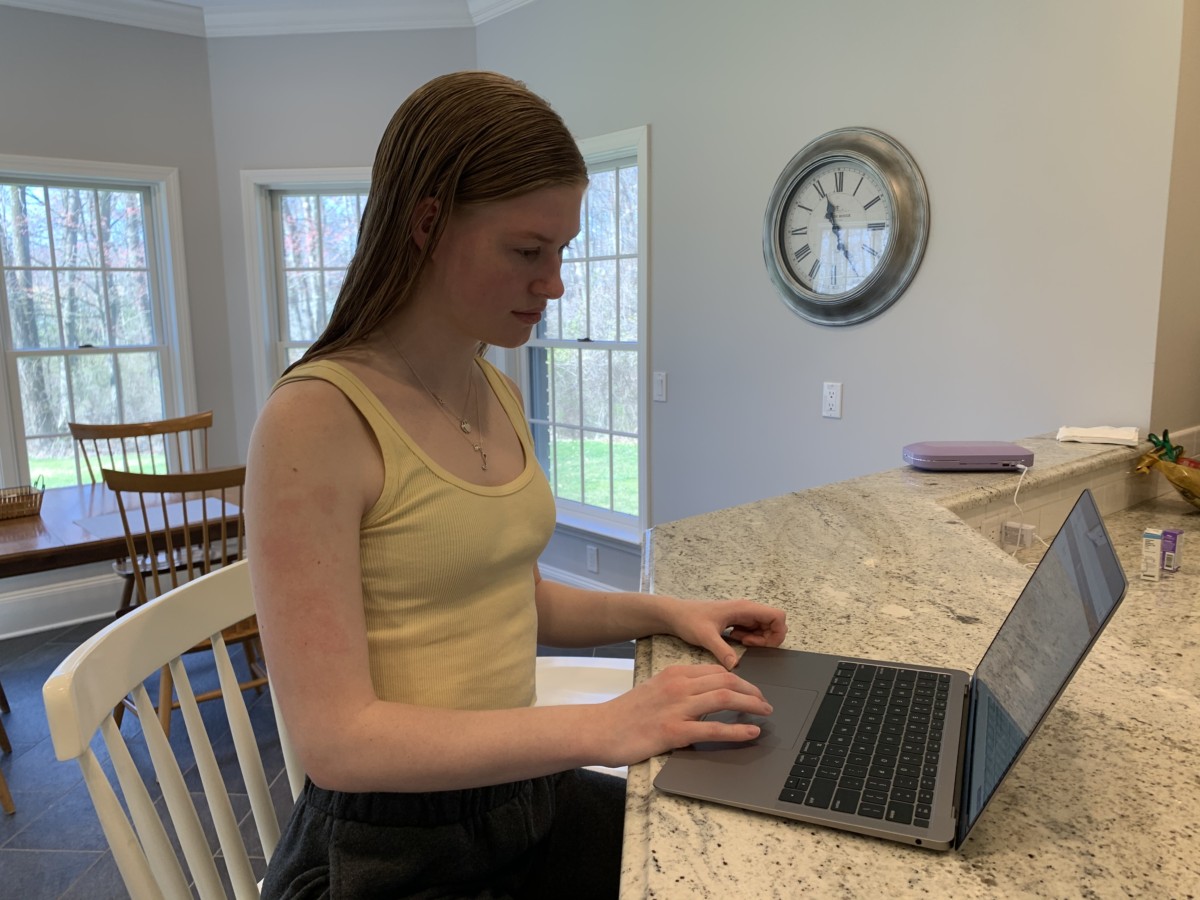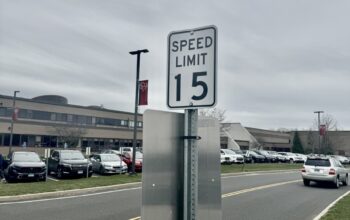Lauren Doherty, Features Editor
@ldohertycourant
Aleena Nasruddin, News Editor
@anasruddincour1
On March 18, Superintendent Dr. Bryan Luizzi informed families, students, and teachers that school would be closed until April 20 and students would continue e-learning.
Dr. Luizzi introduced three guiding principles and goals for the district’s distance learning program. “One is to engage students in meaningful and relevant work so they can continue learning and progressing. Another is to keep our students connected to our schools and each other through the shared experiences of distance learning. And a third is to provide continuity and consistency for our students to help them remain healthy in all domains of their life,” he wrote.
For sophomore Claire Mahoney, the extended break doesn’t seem quite real. “Being out of school for almost a month makes me feel like I am living in a dystopian movie or a history textbook,” Claire said. “Being out for over a month makes me worried that I will have a severe case of cabin fever by the time we go back to school.” To alleviate the repetitiveness of being at home every day, Claire does some activities to look forward to, such as walking her dog, face-timing her grandparents, or cooking meals with her family.

However, Claire likes that e-learning is independent and self-guiding. “I like to go at my own pace and work as an individual, so I like how e-learning allows me to do so,” Claire said.
Junior Bre Shipman also enjoys the freedom of e-learning. “I like not having to rush on some assignments that I am required to finish by the end of a class period in school,” Bre said. “Now I have more time to do a thorough job remotely throughout the day.”
Bre finds that she is still able to appropriately engage with her classmates and teachers. “In many of my classes we have had discussions and videos sent to us to help explain concepts in further detail so we understand the material,” Bre said. “We are able to email our teachers throughout the day if we have any questions.”
Senior Morgan Porter is hoping to return to her typical senior year. “I think I speak for all seniors when I say our mental health is not as stable as it used to be,” she said. “If we get to go back to school on April 20, we will all be so grateful, but it’s going to be bittersweet because the clock is ticking for us.” Seniors are hoping not to miss prom, graduation, and other important milestones. “We all miss our friends, and want our chance back to keep making memories here while we can,” Morgan said.
English teacher Darcy Smith plays both the role of a mom and teacher at home. “Because education is something I value and promote on a daily basis, it has not been overly challenging for me to adjust to e-learning mode,” Ms. Smith said. “Rolling with whatever comes and being level-headed about what can be accomplished for and by my students and my own children is the agenda in my house right now.”
Despite the fluid transition, Ms. Smith does still miss some of the aspects of a classroom environment. “There is momentum in a classroom that is energizing, and that social chemistry is tough to replicate in an online setting,” Ms. Smith said. She said that flexibility is important during these changes. “I never imagined that I would be creating an instructional video about how to introduce quotes in a research paper with my dog next to me,” Ms. Smith said.

Social studies teacher Zeeshaan Arastu said that seeing her students online is not the same as seeing them in person. “The impact of a teacher has as much to do with personality as it has to do with the content, and despite having meaningful work that is impactful of its own accord, the face-to-face interaction is necessary to bring the necessary level of depth to student understanding,” Ms. Arastu said. “It is difficult to ensure students submit work or to monitor progress when students aren’t in front of you.”
Ms. Arastu says that the extended date allows her more time to become comfortable with the new software. “In a way, the extension is good in that we have more time to learn and be creative,” she said.
Math department chair Anthony Bloss said he is confident with how the math department has handled the change. “The math department has always been terrific in terms of constant collaboration, and that has not changed,” Mr. Bloss said. “I plan on continuing to try new things in order to best help students understand new material.”
Starting Monday, March 23, block scheduling was introduced into e-learning. “I do believe that the new schedule we will implement starting Monday will help students better manage the workload and will give teachers more time to research and implement different ways to teach remotely,” Mr. Bloss said.




